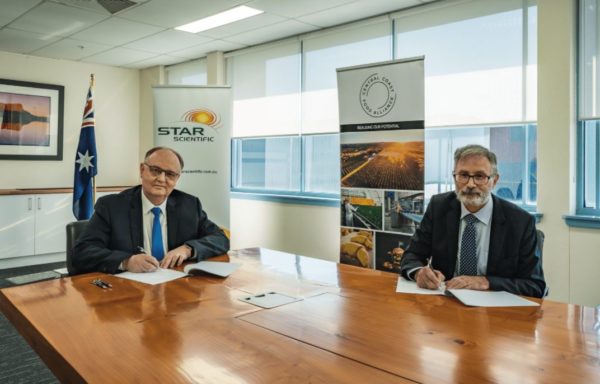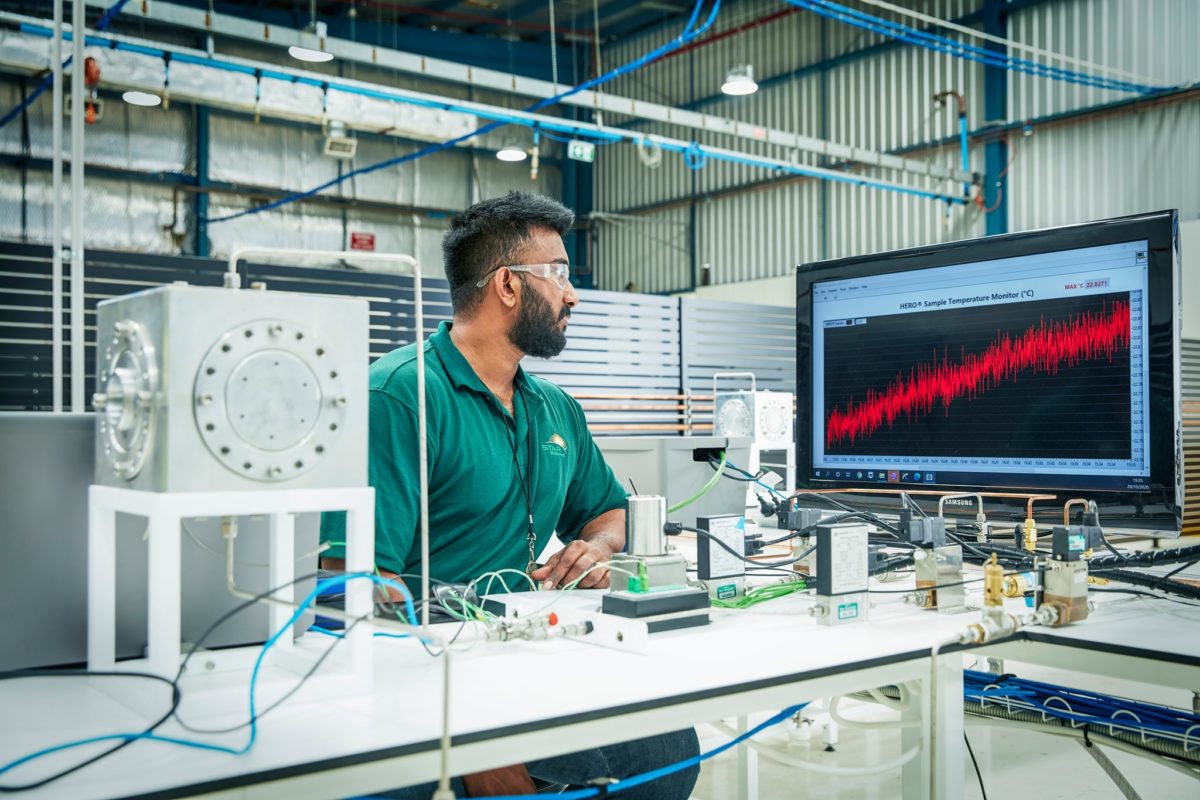Star Scientific and Central Coast Industry Connect (CCIC) have signed a Memorandum of Understanding (MoU) that will pioneer the use of Star Scientific’s game-changing Hydrogen Energy Release Optimiser (HERO) technology to provide a carbon-free heat source for food manufacturing in the New South Wales (NSW) Hunter and Central Coast regions.
CCIC will provide the governance structure and platform for the manufacturing cluster while Star Scientific will work with the food companies to provide carbon-free heat using its HERO technology, a coating substance which can be applied to ceramics or certain metals and which, upon contact with hydrogen and oxygen, increases in temperature from zero to above 700 degrees Celsius in three minutes.
Star Scientific global group chairman Andrew Horvath said the heat reaction technology, which earlier this year won the Sustainable Energy Council’s World Hydrogen Award for Industrial Application, can drive industrial processes that need high heat using renewable hydrogen.
“Food manufacturers all over the world are looking for solutions to remove carbon from industrial processes such as heating, drying and cleaning,” he said.
“The Central Coast region is home to some of Australia’s biggest household brands and global food manufacturers, many of whom are realising the potential of hydrogen and our HERO technology to meet their heating needs.”

Image: Star Scientific
Hovarth said the company, which has an 8,500 square metre research and development facility in Berkeley Vale on the Central Coast, has already commenced work under the MoU providing heat for industrial-scale cleaning purposes in the food hub.
Horvath said the collaboration marks the first commercial application of HERO technology in the world and the cluster would be designed to be as inclusive as possible with ambitions to engage and share knowledge with similar ventures emerging across Australia and New Zealand.
“We want this cluster to be an incubator of regulatory issues for the hydrogen supply chain, and more specifically, green hydrogen made from renewable energy,” he said.
“Regulators are coming to grips with the use of green hydrogen and we hope the cluster will enable us to identify those issues early in the process and deal with them.”
CCIC executive director Frank Sammut said the collaboration would allow the companies involved in the hub to move away from traditional heat sources, saying taking steps to decarbonise is important for the manufacturing sector as a whole, including food and beverage manufacturing.
“Manufacturers have turned to renewable electricity sources to reduce their carbon footprint but alternatives to gas for heating and cooking continues to be a challenge across a number of uses,” he said.
“The MoU with Star Scientific provides the opportunity for developing that alternative carbon-free heat source.”
This content is protected by copyright and may not be reused. If you want to cooperate with us and would like to reuse some of our content, please contact: editors@pv-magazine.com.









By submitting this form you agree to pv magazine using your data for the purposes of publishing your comment.
Your personal data will only be disclosed or otherwise transmitted to third parties for the purposes of spam filtering or if this is necessary for technical maintenance of the website. Any other transfer to third parties will not take place unless this is justified on the basis of applicable data protection regulations or if pv magazine is legally obliged to do so.
You may revoke this consent at any time with effect for the future, in which case your personal data will be deleted immediately. Otherwise, your data will be deleted if pv magazine has processed your request or the purpose of data storage is fulfilled.
Further information on data privacy can be found in our Data Protection Policy.